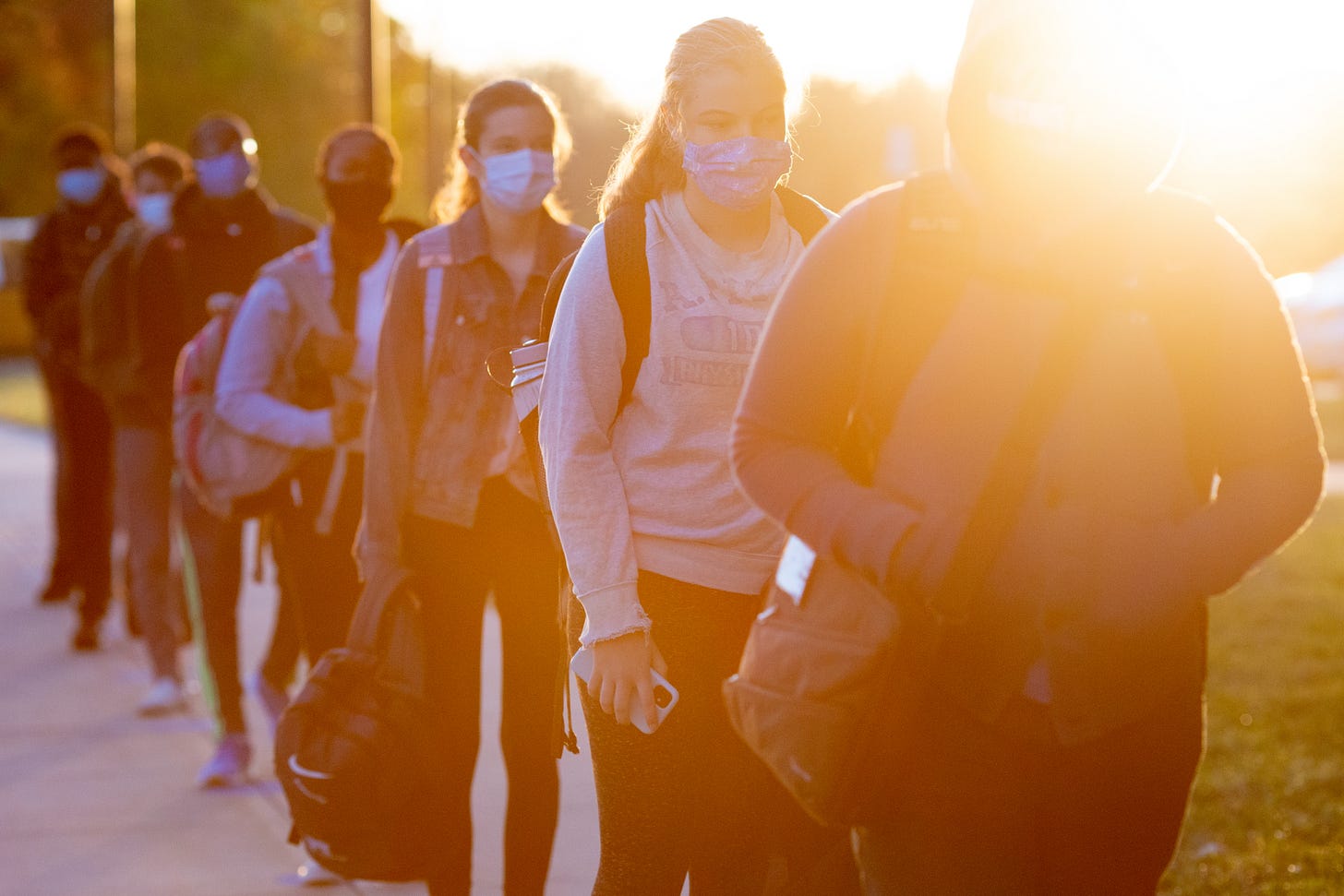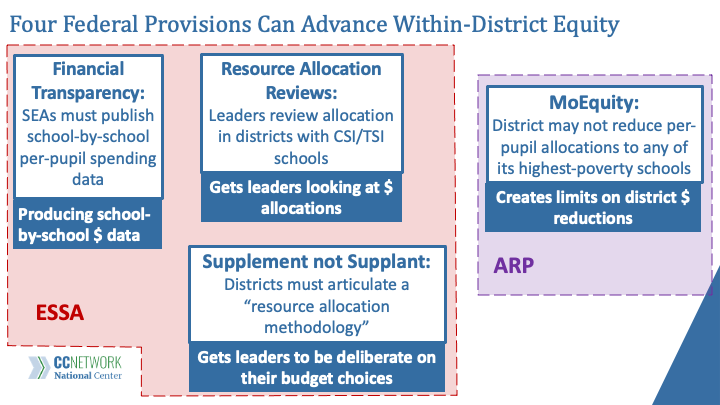It is hard to believe that a quarter of the school year is complete. Now is a good time to check-in. While my kids’ teachers will check-in with us soon during conferences, I think it is also useful to take stock of our national education progress in 2021-22. One exciting note is that the US Department of Education has approved almost all 50 states’ plans to spend the American Rescue Plan funds. Still, these are living documents and state and local agencies are still fleshing out details about these plans. What does that mean for students?
Well, just like I expect my own children’s teachers to make changes this year by using formative and interim assessments to build personalized instructional plans, states and school districts will need to do the same as they begin interpreting measures of student and system progress.
For example, Delaware recently released an updated American Rescue Plan to their website that fleshed out more details about how they will address new data on unfinished learning. Specifically, the changes include more information about the amount and types of investments that will be made to expand multi-tiered systems of support and summer learning programs across the state.
So, now that it is fall-time how are you going to take stock of any progress we’ve made in schools so far? Maybe in August we were simply hoping to open school doors and keep kids safe and learning. But, what do we expect from the remainder of this year? What are our goals for support students’ learning and well-being? And, how are we all navigating on the same course at the state, local, and national levels?
FEDERAL EDUCATION POLICY
USED | The Education Department approves the plans to use American Rescue Plan funds for California and Colorado. Leaving only Florida, Mississippi, Puerto Rico, Vermont, Washington, and Wisconsin under review.
Comprehensive Center Network | Marguerite Roza writes in a new piece about the potential, but not uptake, to apply federal funding policies to establish equitable learning opportunities.
“… there are four federal provisions (accumulated over three administrations) with potential to work together toward fostering equity. But thus far, none of these provisions has been fully implemented by every state, and one seems to have been ignored completely.” — Marguerite Roza, Edunomics
Education Next | Rick Hess and Sue Renner, member of Colorado’s Early Childhood Leadership Commission, discuss the potential implementation faults of the Build Back Better plan for universal preschool.
STATE AND LOCAL EDUCATION POLICY
Chicago | Chicago mayor prioritizes paid time off on November 12 for kids to get vaccinated.
EdWeek | Surveys are reporting that parents are split on whether or not to inoculate their young children in the immediate or long-term.
Sioux City Journal | Local school districts are paying teachers and support staff extra for after-school tutoring work.
Colorado | According to their state constitution, when Colorado’s population grows K-12 spending is supposed to grow accordingly, plus inflation. However, each year legislators hold back those funds for other priorities. But, it is looking like this year will be different.
The74 | In some areas across the country, the pandemic catalyzed a moment for innovation and reinvention of American schools. We can learn from these lessons about how school can look different for children and families; this is an opportunity to fundamentally reinvent school and create a more rich, equitable learning experience for all students.
Chalkbeat Chicago | Chicago Public Schools will use a test-to-stay pilot program to keep students from going into unnecessary quarnatine.
GOVERNANCE, FUNDING, & ACCOUNTABILITY
EdWorkingPapers | A new study revealed that removing state regulations through “zones of innovation” caused limited changes within school district decision making and student outcomes.
EdWeek | Using test results from spring 2021 will require more caution and triangulation this year, but they are still worth reviewing according to experts.
EdWeek | The latest report on unfinished learning from Curriculum Associates reveals that 2nd and 3rd graders saw the biggest drops in the number of students on grade level compared to historical fall-time benchmarks.
“Unfinished learning has taken place in every elementary and middle school grade, 1st through 8th, reading and math. Unfortunately, those students who came into the pandemic at the greatest risk are at the most danger of not catching up from the dire consequences of the last 18 months.” — Kristen Huff, Curriculum Associates
LOCAL POLITICS AND LEADERSHIP
Education Post | School board members are an un-tapped source of local influence on educational progress. In a recent piece, School Board Partners leadership, Carrie Douglas and Ethan Ashley, share their proposed pathway to professionalize this role including wages, training, and full-time support from school districts.
EdWeek | The pandemic illuminated a new area for leadership development: crisis management training. A few principals from across the US narrowed down some advice for their colleagues facing the persisting social challenges of COVID-19 and beyond.
Fordham | There are big changes emerging from the school board races last week. While few results coalesced into meaningful trends that will help us navigate the next year, one thing is still missing: bold discussions about students and learning.
STUDENT WELL-BEING
EdWeek | The OECD released the first international study of social-emotional skills, reporting that across 11 countries curiosity and persistence were most closely linked to increasing academic performance for both 10 and 15-year-olds. The report does not
“These findings might partly derive from the fact that education systems often expect compliance from students with the potential consequence of driving out creative and divergent thinking as students grow older and stay longer in the education system” — Beyond Academic Learning, OECD
Chalkbeat CO | Colorado is investing pandemic relief funds into a new systems to connect students with free mental health services.
UPCOMING EVENTS
Wednesday, November 10, 2021 (3:00 PM EST) AASA is hosting How to Optimize Costs & Resources to Re-Invest in Learning.
Wednesday, November 17, 2021 (10:00 AM EST) The D.C. Policy Center will host Measuring Early Career Outcomes in D.C.
Wednesday, November 17, 2021 (3:00 PM EST) Alliance for Early Success will host author Jonathan Metzl on Dying of Whiteness: How the Politics fo Racial Resentment is Killing America’s Heartland. Register here.
Dr. Christine M. T. Pitts serves as Resident Policy Fellow at the Center on Reinventing Public Education. As an Oregonian, raised by a multicultural family of educators, she brings over a decade of strategic leadership experience advancing a transformative vision for US education systems and bringing analytic skill to evidence-based policy agendas. Prior to joining CRPE, Christine led research and evaluation for Portland Public Schools in Oregon and served as Policy Advisor at NWEA. Her academic research, focusing on accountability, governance, and social networks, can be found in Educational Researcher and Teachers College Record. As a lifelong educator, Christine has served in schools across the country as a 3rd grade teacher, reading specialist, and school and district administrator. Christine earned her BS and MAEd at East Carolina University, as well as her PhD at the University of Oregon. Christine lives with her husband and four children in Portland, Oregon. Follow her on Twitter @cmtpitts.








